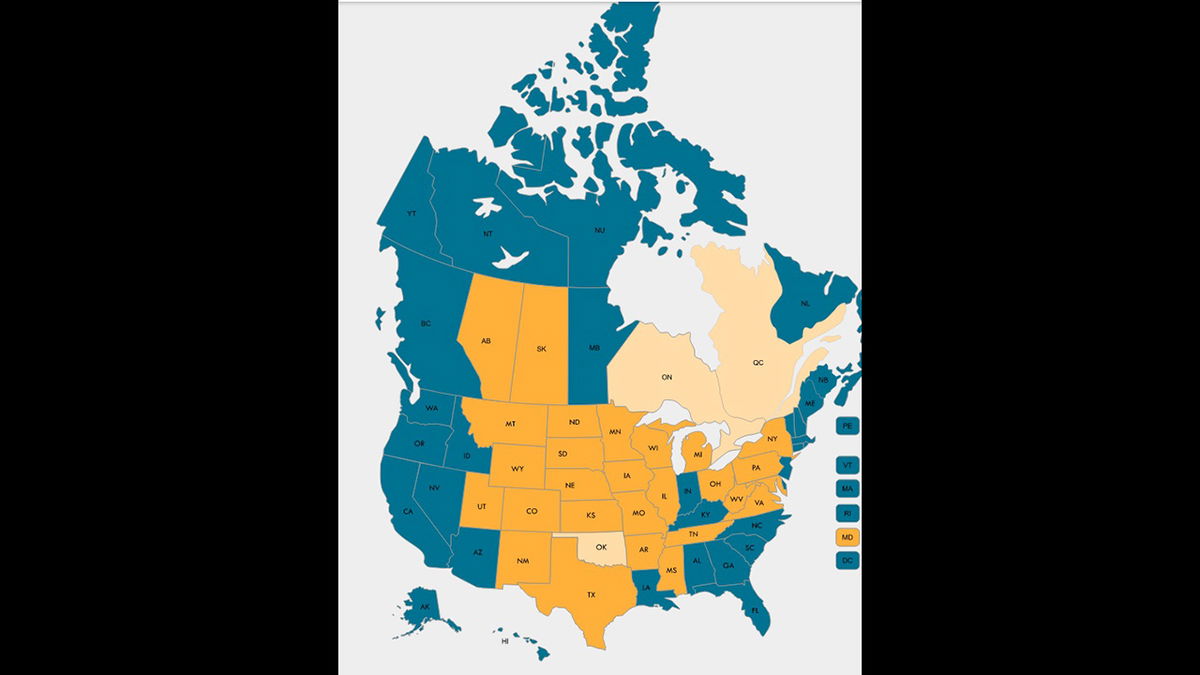F&G seeks help to monitor for CWD, prevent it from entering Idaho
IDAHO FALLS, Idaho (KIFI) - Chronic Wasting Disease is a threat to Idaho’s big game animals, and Fish and Game is asking for help to prevent it from entering the state and to monitor for it within the state.
CWD is a contagious and fatal neurological disease that affects deer, elk and moose in North America, and there is no live test or known cure for CWD.
CWD has not been detected in Idaho to date; however, animals in Montana, Utah and Wyoming have the disease, and infected animals have been found close to the Idaho border.
Idaho Fish and Game staff sampled 1,113 mule deer, white-tailed deer, elk and moose in 2020 and early 2021 to test for Chronic Wasting Disease, and found no positive cases. This is an ongoing effort, and the majority of the animals tested came from hunters who allowed samples to be taken from big game they harvested. That will continue during fall hunting seasons.
Hunter participation is critical for monitoring CWD and keeping it out of Idaho, and here are ways hunters can help.
Are you hunting in Idaho for deer, elk or moose?
Fish and Game needs help to get more Idaho big game animals tested for CWD. Hunters can help increase the number of Idaho deer, elk and moose sampled for CWD by doing one of the following:
- Collecting samples from harvested animal and dropping them off at identified Idaho Fish and Game collection locations or a Regional Office.
- Dropping the head of harvested animal at identified Idaho Fish and Game collection locations or a Regional Office.
- Stop at one of Fish and Game’s big game check stations during hunting season.
- All drop off locations and check station information will be available on the Idaho Fish & Game CWD page:
- CWD sample kits can be requested directly from Fish and Game by emailing your mailing address to: wildlifelab@idfg.idaho.gov
Are you hunting outside Idaho for deer, elk, moose or caribou?
Do not bring whole carcasses back. Idaho law does not allow hunters to bring into Idaho a whole carcass, or any part of a wild deer, elk, moose or caribou from any state, Canadian province, or country with a documented case of CWD.
States and provinces in orange and tan have known cases of CWD.

Don’t worry, you can still bring the meat and antlers into Idaho, exemptions to the ban include:
- Meat that is cut and wrapped
- Quarters or deboned meat that does not include brain or spinal tissue
- Edible organs that do not include brains
- Hides without heads
- Upper canine teeth
- Ivories, buglers or whistlers
- Finished taxidermy
- Dried antlers
- Cleaned and dried skulls or skull caps
What if you see an animal that appears to have CWD?
Fish and Game welcomes reports by hunters and citizens. A person should accurately document the location of the animal (GPS coordinates if possible) and report the species and gender, if known. Take pictures, if possible, and immediately contact the nearest Fish and Game regional office.
Do not attempt to touch, disturb, kill or remove the animal. Remember, early detection in an area is vital to containing the disease and preventing it from spreading to other areas of the state.You can also report online at Fish and Game’s Wildlife Health webpage.
For more information about CWD, and what Fish and Game is doing to prevent it, see the CWD information webpage.
